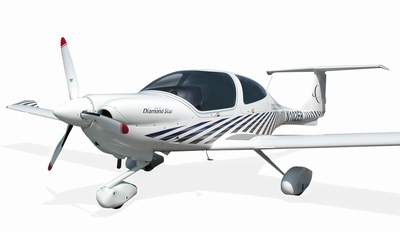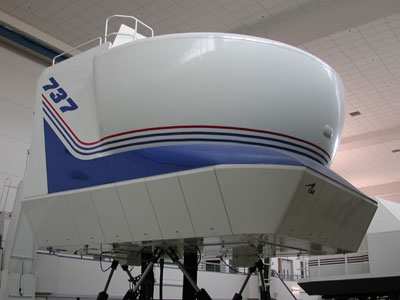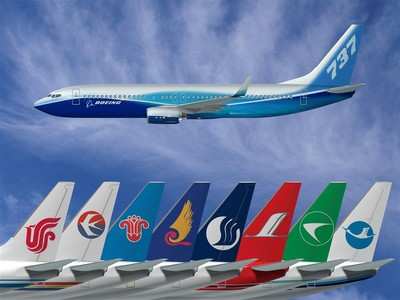Training Program Aims To Put FO's In Right Seat Faster
By ANN Associate Editor Mark Sletten
 Yesterday, in part one of this two-part
series, we told you flight training expert Alteon has begun a
Multi-Crew Pilot License (MPL) training program in Brisbane,
Australia. In this conclusion, we'll describe in-depth just how
Alteon plans to complete training for its six MPL cadets.
Yesterday, in part one of this two-part
series, we told you flight training expert Alteon has begun a
Multi-Crew Pilot License (MPL) training program in Brisbane,
Australia. In this conclusion, we'll describe in-depth just how
Alteon plans to complete training for its six MPL cadets.
Alteon has created a four-phase program for its beta class. The
phases are: Core, Basic, Intermediate and Advanced, and Bell says
they "provide a more streamlined path from the street to the
seat."
In the Core phase, cadets get their introduction to flight.
Alteon will use a combination of flight training using Diamond
DA40s and a full daylight visual DA40-based flight training device
(FTD).
You may be asking yourself why Alteon is using a four-seater.
Bell states in the Core phase, students will fly as one of three
positions in the DA40: pilot flying, pilot monitoring and pilot
observing, or safety officer. The first two represent the
traditional pilot/co-pilot flight crew, and each performs all the
traditional duties thereof.
The pilot observing is responsible for what Bell calls "threat
and error management." Bell says the observer will document the
crew's activity and lead the debrief following the training
flight.
If you've ever sat in an aircraft in which another pilot is
receiving flight training, you will immediately understand the
value of the idea of a pilot observer. Removing all responsibility
to manipulate controls, interact with air traffic control and
manage systems makes it much easier to think about the larger
picture. An observer can more easily see how a seemingly small
action (or inaction) in one phase of a flight can cause big
problems with another -- some call it situational awareness. Alteon
believes this approach will allow it to inculcate an understanding
and appreciation of the intrinsic value of situational awareness in
much less time.

Cadets will follow the same training format in the DA40 FTD for
the ground-based training. In the Basic phase, cadets will increase
the complexity of the training including such activities as
instrument flight. Alteon intends to stick with the same equipment
and format, with cadets fulfilling the same three positions for
flight and simulator training.
Bell says in the first two phases, cadets will accumulate
approximately 100 hours of logged flight time -- some as pilot
flying, some as pilot monitoring. Initial plans call for some 64
hours as pilot flying. cadets will fly 34 flights in the Core phase
and 17 in Basic. They'll rotate among the three positions for each
flight, spending approximately 1.25 hours in each. By the end of
the first two phases, including time logged in all three positions,
each cadet will have spent 200 hours in the aircraft.
Similarly, for the FTD-based training, cadets will rotate among
the three positions, gaining some 130 total hours and logging
44.
For the Intermediate phase, cadets will graduate to multi-engine
training using a level-five, fixed-base, next-generation 737 flight
simulator. Training during this phase will be crew and line
oriented.
Advanced cadets will move on to training in the specific
aircraft -- airliner, bizjet, etc. -- they will fly for their
airline. Bell equates the Advanced phase to type-certificate
training here in the US.
Bell says all of Alteon's first six cadets will end up flying
737s for their respective airlines, so their advanced training will
continue in its 737 simulator in Brisbane.

After they complete training with Alteon, they'll get airline
orientation training from their respective airlines -- abbreviated
of course, since all their training to date will have been crew
oriented -- get 12 takeoffs and landings in a 737, then they'll hit
the line flying passengers... under the supervision of an
experienced captain of course, just like any other new first
officer.
An important part of the MCL program for Alteon is
close communication with its airline customers, Bell says. The ICAO
has requested airlines keep careful records to document the
progress and experience of MPL pilots to allow for a comparison of
their performance compared to traditionally trained pilots.
Bell states Alteon would have taken this step anyway, even if
ICAO hadn't requested it.
Alteon states the European Union's Joint Aviation
Authorities/European Aviation Safety Agency (JAA/EASA) has already
rewritten its regulatory language to account for the MPL, although
none of its member nations has enacted an MPL program as
yet. Bell told ANN Germany, Singapore and the UK are all in
the process of making the necessary regulatory changes to adopt the
standard.
We asked how many countries are planning to accept the MPL, and
she said even the ICAO can't answer that. "Dozens and dozens of
countries have expressed interest in our MPL training," said Bell.
"Most are waiting to see how our beta group does."
Bell noted that while the ICAO outlines MPL qualification
standards, they are minimum standards; each country may adopt
higher qualification standards if they wish. For the six cadets
training in Australia (even though Australia hasn't officially
adopted the MPL as of yet, it's one of the countries making the
necessary regulatory changes) the country's Civil Aviation Safety
Authority has requested each cadet acquire ten hours of solo flight
time -- something not required by the ICAO MPL standard.

ANN asked if Bell she's heard anything through the grapevine
regarding a possible US MPL, or some form of it.
"I know the US had representation on the ICAO committee that
developed the standard," said Bell, "but the MPL is aimed primarily
at countries whose aviation infrastructure can't supply enough
pilots. The training infrastructure in the US provides more than
enough pilots for the country's needs. Until that changes I don't
see it happening here."
Whatever happens, you can be sure if the MPL is adopted here...
any training program developed to support it will benefit from
Alteon's pioneering effort in Australia.
 ANN's Daily Aero-Linx (04.16.24)
ANN's Daily Aero-Linx (04.16.24) Aero-News: Quote of the Day (04.16.24)
Aero-News: Quote of the Day (04.16.24) Airborne 04.10.24: SnF24!, A50 Heritage Reveal, HeliCycle!, Montaer MC-01
Airborne 04.10.24: SnF24!, A50 Heritage Reveal, HeliCycle!, Montaer MC-01 Airborne 04.12.24: SnF24!, G100UL Is Here, Holy Micro, Plane Tags
Airborne 04.12.24: SnF24!, G100UL Is Here, Holy Micro, Plane Tags Airborne-Flight Training 04.17.24: Feds Need Controllers, Spirit Delay, Redbird
Airborne-Flight Training 04.17.24: Feds Need Controllers, Spirit Delay, Redbird






